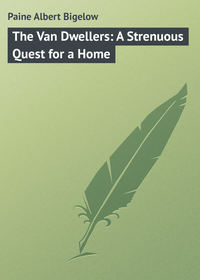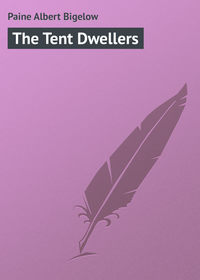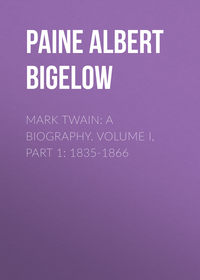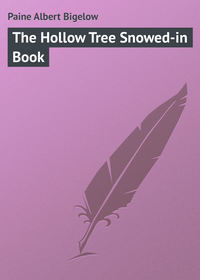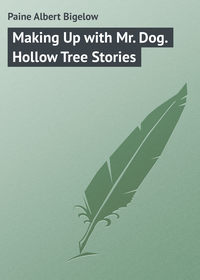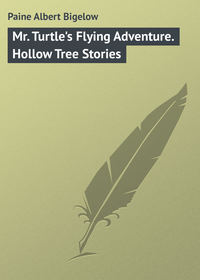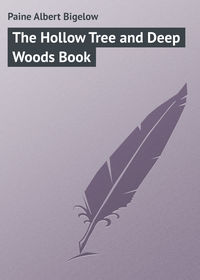
Mark Twain: A Biography. Volume I, Part 2: 1835-1866
DEAR SIR,—We take the liberty to address you this, in place of a letter which we had recently written and were about to forward to you, not knowing your arrival home was expected so soon. We are desirous of obtaining from you a work of some kind, perhaps compiled from your letters from the past, etc., with such interesting additions as may be proper. We are the publishers of A. D. Richardson's works, and flatter ourselves that we can give an author a favorable term and do as full justice to his productions as any other house in the country. We are perhaps the oldest subscription house in the country, and have never failed to give a book an immense circulation. We sold about 100,000 copies of Richardson's F. D. and E. ('Field, Dungeon and Escape'), and are now printing 41,000 of 'Beyond the Mississippi', and large orders ahead. If you have any thought of writing a book, or could be induced to do so, we should be pleased to see you, and will do so. Will you do us the favor of reply at once, at your earliest convenience.
Very truly etc.,
E. BLISS, JR.,Secretary.After ten days' delay this letter was forwarded to the Tribune bureau in Washington, where Clemens received it. He replied promptly.
WASHINGTON, December 2, 1867.
E. BLISS, JR., ESQ., Secretary American Publishing Co.
DEAR SIR,—I only received your favor of November 21st last night, at the rooms of the Tribune Bureau here. It was forwarded from the Tribune office, New York where it had lain eight or ten days. This will be a sufficient apology for the seeming discourtesy of my silence.
I wrote fifty-two letters for the San Francisco Alta California during the Quaker City excursion, about half of which number have been printed thus far. The Alta has few exchanges in the East, and I suppose scarcely any of these letters have been copied on this side of the Rocky Mountains. I could weed them of their chief faults of construction and inelegancies of expression, and make a volume that would be more acceptable in many respects than any I could now write. When those letters were written my impressions were fresh, but now they have lost that freshness; they were warm then, they are cold now. I could strike out certain letters, and write new ones wherewith to supply their places. If you think such a book would suit your purpose, please drop me a line, specifying the size and general style of the volume—when the matter ought to be ready; whether it should have pictures in it or not; and particularly what your terms with me would be, and what amount of money I might possibly make out of it. The latter clause has a degree of importance for me which is almost beyond my own comprehension. But you understand that, of course.
I have other propositions for a book, but have doubted the propriety of interfering with good newspaper engagements, except my way as an author could be demonstrated to be plain before me. But I know Richardson, and learned from him some months ago something of an idea of the subscription plan of publishing. If that is your plan invariably it looks safe.
I am on the New York Tribune staff here as an "occasional," among other things, and a note from you addressed to
Very truly, etc.,
SAM. L. CLEMENS,New York Tribune Bureau, Washingtonwill find me, without fail.The exchange of those two letters marked the beginning of one of the most notable publishing connections in American literary history.
Consummation, however, was somewhat delayed. Bliss was ill when the reply came, and could not write again in detail until nearly a month later. In this letter he recited the profits made by Richardson and others through subscription publication, and named the royalties paid. Richardson had received four per cent. of the sale price, a small enough rate for these later days; but the cost of manufacture was larger then, and the sale and delivery of books through agents has ever been an expensive process. Even Horace Greeley had received but a fraction more on his Great American Conflict. Bliss especially suggested and emphasized a "humorous work—that is to say, a work humorously inclined." He added that they had two arrangements for paying authors: outright purchase, and royalty. He invited a meeting in New York to arrange terms.
LXIV
OLIVIA LANGDON
Clemens did in fact go to New York that same evening, to spend Christmas with Dan Slote, and missed Bliss's second letter. It was no matter. Fate had his affairs properly in hand, and had prepared an event of still larger moment than the publication even of Innocents Abroad. There was a pleasant reunion at Dan Slote's. He wrote home about it:
Charley Langdon, Jack Van Nostrand, Dan and I (all Quaker City night-hawks) had a blow-out at Dan's house and a lively talk over old times. I just laughed till my sides ached at some of our reminiscences. It was the unholiest gang that ever cavorted through Palestine, but those are the best boys in the world.
This, however, was not the event; it was only preliminary to it. We are coming to that now. At the old St. Nicholas Hotel, which stood on the west of Broadway between Spring and Broome streets, there were stopping at this time Jervis Langdon, a wealty coal-dealer and mine-owner of Elmira, his son Charles and his daughter Olivia, whose pictured face Samuel Clemens had first seen in the Bay of Smyrna one September day. Young Langdon had been especially anxious to bring his distinguished Quaker City friend and his own people together, and two days before Christmas Samuel Clemens was invited to dine at the hotel. He went very willingly. The lovely face of that miniature had been often a part of his waking dreams. For the first time now he looked upon its reality. Long afterward he said:
"It is forty years ago. From that day to this she has never been out of my mind."
Charles Dickens was in New York then, and gave a reading that night in Steinway Hall. The Langdons went, and Samuel Clemens accompanied them. He remembered afterward that Dickens wore a black velvet coat with a fiery red flower in his buttonhole, and that he read the storm scene from Copperfield—the death of James Steerforth. But he remembered still more clearly the face and dress of that slender girlish figure at his side.
Olivia Langdon was twenty-two years old at this time, delicate as the miniature he had seen, fragile to look upon, though no longer with the shattered health of her girlhood. At sixteen, through a fall upon the ice, she had become a complete invalid, confined to her bed for two years, unable to sit, even when supported, unable to lie in any position except upon her back. Great physicians and surgeons, one after another, had done their best for her but she had failed steadily until every hope had died. Then, when nothing else was left to try, a certain Doctor Newton, of spectacular celebrity, who cured by "laying on of hands," was brought to Elmira to see her. Doctor Newton came into the darkened room and said:
"Open the windows—we must have light!"
They protested that she could not bear the light, but the windows were opened. Doctor Newton came to the bedside of the helpless girl, delivered a short, fervent prayer, put his arm under her shoulders, and bade her sit up. She had not moved for two years, and the family were alarmed, but she obeyed, and he assisted her into a chair. Sensation came back to her limbs. With his assistance she even made a feeble attempt to walk. He left then, saying that she would gradually improve, and in time be well, though probably never very strong. On the same day he healed a boy, crippled and drawn with fever.
It turned out as he had said. Olivia Langdon improved steadily, and now at twenty-two, though not robust—she was never that—she was comparatively well. Gentle, winning, lovable, she was the family idol, and Samuel Clemens joined in their worship from the moment of that first meeting.
Olivia Langdon, on her part, was at first dazed and fascinated, rather than attracted, by this astonishing creature, so unlike any one she had ever known. Her life had been circumscribed, her experiences of a simple sort. She had never seen anything resembling him before. Indeed, nobody had. Somewhat carelessly, even if correctly, attired; eagerly, rather than observantly, attentive; brilliant and startling, rather than cultured, of speech—a blazing human solitaire, unfashioned, unset, tossed by the drift of fortune at her feet. He disturbed rather than gratified her. She sensed his heresy toward the conventions and forms which had been her gospel; his bantering, indifferent attitude toward life—to her always so serious and sacred; she suspected that he even might have unorthodox views on matters of religion. When he had gone she somehow had the feeling that a great fiery meteor of unknown portent had swept across her sky.
To her brother, who was eager for her approval of his celebrity, Miss Langdon conceded admiration. As for her father, he did not qualify his opinion. With hearty sense of humor, and a keen perception of verity and capability in men, Jervis Langdon accepted Samuel Clemens from the start, and remained his stanch admirer and friend. Clemens left that night with an invitation to visit Elmira by and by, and with the full intention of going—soon. Fate, however, had another plan. He did not see Elmira for the better part of a year.
He saw Miss Langdon again within the week. On New-Year's Day he set forth to pay calls, after the fashion of the time—more lavish then than now. Miss Langdon was receiving with Miss Alice Hooker, a niece of Henry Ward Beecher, at the home of a Mrs. Berry; he decided to go there first. With young Langdon he arrived at eleven o'clock in the morning, and they did not leave until midnight. If his first impression upon Olivia Langdon had been meteoric, it would seem that he must now have become to her as a streaming comet that swept from zenith to horizon. One thing is certain: she had become to him the single, unvarying beacon of his future years. He visited Henry Ward Beecher on that trip and dined with him by invitation. Harriet Beecher Stowe was present, and others of that eminent family. Likewise his old Quaker City comrades, Moses S. and Emma Beach. It was a brilliant gathering, a conclave of intellectual gods—a triumph to be there for one who had been a printer-boy on the banks of the Mississippi, and only a little while before a miner with pick and shovel. It was gratifying to be so honored; it would be pleasant to write home; but the occasion lacked something too —everything, in fact—for when he ran his eye around the board the face of the minature was not there.
Still there were compensations; inadequate, of course, but pleasant enough to remember. It was Sunday evening and the party adjourned to Plymouth Church. After services Mr. Beecher invited him to return home with him for a quiet talk. Evidently they had a good time, for in the letter telling of these things Samuel Clemens said: "Henry Ward Beecher is a brick."
LXV
A CONTRACT WITH ELISHA BLISS, JR
He returned to Washington without seeing Miss Langdon again, though he would seem to have had permission to write—friendly letters. A little later (it was on the evening of January 9th) he lectured in Washington —on very brief notice indeed. The arrangement for his appearance had been made by a friend during his absence—"a friend," Clemens declared afterward, "not entirely sober at the time." To his mother he wrote:
I scared up a doorkeeper and was ready at the proper time, and by pure good luck a tolerably good house assembled and I was saved. I hardly knew what I was going to talk about, but it went off in splendid style.
The title of the lecture delivered was "The Frozen Truth"—"more truth in the title than in the lecture," according to his own statement. What it dealt with is not remembered now. It had to do with the Quaker City trip, perhaps, and it seems to have brought a financial return which was welcome enough. Subsequently he delivered it elsewhere; though just how far the tour extended cannot be learned from the letters, and he had but little memory of it in later years.
There was some further correspondence with Bliss, then about the 21st of January (1868) Clemens made a trip to Hartford to settle the matter. Bliss had been particularly anxious to meet him, personally and was a trifle disappointed with his appearance. Mark Twain's traveling costume was neither new nor neat, and he was smoking steadily a pipe of power. His general make-up was hardly impressive.
Bliss's disturbance was momentary. Once he began to talk the rest did not matter. He was the author of those letters, and Bliss decided that personally he was even greater than they. The publisher, confined to his home with illness, offered him the hospitality of his household. Also, he made him two propositions: he would pay him ten thousand dollars cash for his copyright, or he would pay five per cent. royalty, which was a fourth more than Richardson had received. He advised the latter arrangement.
Clemens had already taken advice and had discussed the project a good deal with Richardson. The ten thousand dollars was a heavy temptation, but he withstood it and closed on the royalty basis—"the best business judgment I ever displayed," he was wont to declare. A letter written to his mother and sister near the end of this Hartford stay is worth quoting pretty fully here, for the information and "character" it contains. It bears date of January 24th.
This is a good week for me. I stopped in the Herald office, as I came through New York, to see the boys on the staff, and young James Gordon Bennett asked me to write twice a week, impersonally, for the Herald, and said if I would I might have full swing, and about anybody and everything I wanted to. I said I must have the very fullest possible swing, and he said, "All right." I said, "It's a contract—" and that settled that matter.
I'll make it a point to write one letter a week anyhow. But the best thing that has happened is here. This great American Publishing Company kept on trying to bargain with me for a book till I thought I would cut the matter short by coming up for a talk. I met Henry Ward Beecher in Brooklyn, and with his usual whole-souled way of dropping his own work to give other people a lift when he gets a chance, he said: "Now, here, you are one of the talented men of the age—nobody is going to deny that—but in matters of business I don't suppose you know more than enough to come in when it rains. I'll tell you what to do and how to do it." And he did.
And I listened well, and then came up here and made a splendid contract for a Quaker City book of 5 or 600 large pages, with illustrations, the manuscript to be placed in the publisher's hands by the middle of July.—[The contract was not a formal one. There was an exchange of letters agreeing to the terms, but no joint document was drawn until October 16 (1868).]—My percentage is to be a fourth more than they have ever paid any author except Greeley. Beecher will be surprised, I guess, when he hears this.
These publishers get off the most tremendous editions of their books you can imagine. I shall write to the Enterprise and Alta every week, as usual, I guess, and to the Herald twice a week, occasionally to the Tribune and the magazines (I have a stupid article in the Galaxy, just issued), but I am not going to write to this and that and the other paper any more.
I have had a tiptop time here for a few days (guest of Mr. Jno.
Hooker's family—Beecher's relatives—in a general way of Mr. Bliss also, who is head of the publishing firm). Puritans are mighty straight-laced, and they won't let me smoke in the parlor, but the Almighty don't make any better people. I have to make a speech at the annual Herald dinner on the 6th of
May.
So the book, which would establish his claim to a peerage in the literary land, was arranged for, and it remained only to prepare the manuscript, a task which he regarded as not difficult. He had only to collate the Alta and Tribune letters, edit them, and write such new matter as would be required for completeness.
Returning to Washington, he plunged into work with his usual terrific energy, preparing the copy—in the mean time writing newspaper correspondence and sketches that would bring immediate return. In addition to his regular contributions, he entered into a syndicate arrangement with John Swinton (brother of William Swinton, the historian) to supply letters to a list of newspapers.
"I have written seven long newspaper letters and a short magazine article in less than two days," he wrote home, and by the end of January he had also prepared several chapters of his book.
The San Francisco post-mastership was suggested to him again, but he put the temptation behind him. He refers to this more than once in his home letters, and it is clear that he wavered.
Judge Field said if I wanted the place he could pledge me the President's appointment, and Senator Corners said he would guarantee me the Senate's confirmation. It was a great temptation, but it would render it impossible to fill my book contract, and I had to drop the idea….
And besides I did not want the office.
He made this final decision when he heard that the chief editor of the Alta wanted the place, and he now threw his influence in that quarter. "I would not take ten thousand dollars out of a friend's pocket," he said.
But then suddenly came the news from Goodman that the Alta publishers had copyrighted his Quaker City letters and proposed getting them out in a book, to reimburse themselves still further on their investment. This was sharper than a serpent's tooth. Clemens got confirmation of the report by telegraph. By the same medium he protested, but to no purpose. Then he wrote a letter and sat down to wait. He reported his troubles to Orion:
I have made a superb contract for a book, and have prepared the first ten chapters of the sixty or eighty, but I will bet it never sees the light. Don't you let the folks at home hear that. That thieving Alta copyrighted the letters, and now shows no disposition to let me use them. I have done all I can by telegraph, and now await the final result by mail. I only charged them for 50 letters what (even in) greenbacks would amount to less than two thousand dollars, intending to write a good deal for high-priced Eastern papers, and now they want to publish my letters in book form themselves to get back that pitiful sum.
Orion was by this time back from Nevada, setting type in St. Louis. He was full of schemes, as usual, and his brother counsels him freely. Then he says:
We chase phantoms half the days of our lives. It is well if we learn wisdom even then, and save the other half.
I am in for it. I must go on chasing them, until I marry, then I am done with literature and all other bosh—that is, literature wherewith to please the general public.
I shall write to please myself then.
He closes by saying that he rather expects to go with Anson Burlingame on the Chinese embassy. Clearly he was pretty hopeless as to his book prospects.
His first meeting with General Grant occurred just at this time. In one of his home letters he mentions, rather airily, that he will drop in someday on the General for an interview; and at last, through Mrs. Grant, an appointment was made for a Sunday evening when the General would be at home. He was elated with the prospect of an interview; but when he looked into the imperturbable, square, smileless face of the soldier he found himself, for the first time in his life, without anything particular to say. Grant nodded slightly and waited. His caller wished something would happen. It did. His inspiration returned.
"General," he said, "I seem to be a little embarrassed. Are you?"
That broke the ice. There were no further difficulties.—[Mark Twain has variously related this incident. It is given here in accordance with the letters of the period.]
LXVI
BACK TO SAN FRANCISCO
Reply came from the Alta, but it was not promising. It spoke rather vaguely of prior arrangements and future possibilities. Clemens gathered that under certain conditions he might share in the profits of the venture. There was but one thing to do; he knew those people—some of them—Colonel McComb and a Mr. McCrellish intimately. He must confer with them in person.
He was weary of Washington, anyway. The whole pitiful machinery of politics disgusted him. In his notebook he wrote:
Whiskey is taken into the committee rooms in demijohns and carried out in demagogues.
And in a letter:
This is a place to get a poor opinion of everybody in. There are some pitiful intellects in this Congress! There isn't one man in Washington in civil office who has the brains of Anson Burlingame, and I suppose if China had not seized and saved his great talents to the world this government would have discarded him when his time was up.—[Anson Burlingame had by this time become China's special ambassador to the nations.]
Furthermore, he was down on the climate of Washington. He decided to go to San Francisco and see "those Alta thieves face to face." Then, if a book resulted, he could prepare it there among friends. Also, he could lecture.
He had been anxious to visit his people before sailing, but matters were too urgent to permit delay. He obtained from Bliss an advance of royalty and took passage, by way of Aspinwall, on the sidewheel steamer Henry Chauncey, a fine vessel for those days. The name of Mark Twain was already known on the isthmus, and when it was learned he had arrived on the Chauncey a delegation welcomed him on the wharf, and provided him with refreshments and entertainment. Mr. Tracy Robinson, a poet, long a resident of that southern land, was one of the group. Beyond the isthmus Clemens fell in again with his old captain, Ned Wakeman, who during the trip told him the amazing dream that in due time would become Captain Stormfield's Visit to Heaven. He made the first draft of this story soon after his arrival in San Francisco, as a sort of travesty of Elizabeth Stuart Phelps's Gates Ajar, then very popular. Clemens, then and later, had a high opinion of Capt. Ned Wakeman's dream, but his story of it would pass through several stages before finally reaching the light of publication.—[Mr. John P. Vollmer, now of Lewiston, Idaho, a companion of that voyage, writes of a card game which took place beyond the isthmus. The notorious crippled gambler, "Smithy," figured in it, and it would seem to have furnished the inspiration for the exciting story in Chapter XXXVI of the Mississippi book.]
In San Francisco matters turned out as he had hoped. Colonel McComb was his stanch friend; McCrellish and Woodward, the proprietors, presently conceded that they had already received good value for the money paid. The author agreed to make proper acknowledgments to the Alta in his preface, and the matter was settled with friendliness all around.
The way was now clear, the book assured. First, however, he must provide himself with funds. He delivered a lecture, with the Quaker City excursion as his subject. On the 5th of May he wrote to Bliss:
I lectured here on the trip the other night; over $1,600 in gold in the house; every seat taken and paid for before night.
He reports that he is steadily at work, and expects to start East with the completed manuscript about the middle of June.
But this was a miscalculation. Clemens found that the letters needed more preparation than he had thought. His literary vision and equipment had vastly altered since the beginning of that correspondence. Some of the chapters he rewrote; others he eliminated entirely. It required two months of fairly steady work to put the big manuscript together.
Some of the new chapters he gave to Bret Harte for the Overland Monthly, then recently established. Harte himself was becoming a celebrity about this time. His "Luck of Roaring Camp" and "The Outcasts of Poker Flat," published in early numbers of the Overland, were making a great stir in the East, arousing there a good deal more enthusiasm than in the magazine office or the city of their publication. That these two friends, each supreme in his own field, should have entered into their heritage so nearly at the same moment, is one of the many seemingly curious coincidences of literary history.
Clemens now concluded to cover his lecture circuit of two years before. He was assured that it would be throwing away a precious opportunity not to give his new lecture to his old friends. The result justified that opinion. At Virginia, at Carson, and elsewhere he was received like a returned conqueror. He might have been accorded a Roman triumph had there been time and paraphernalia. Even the robbers had reformed, and entire safety was guaranteed him on the Divide between Virginia and Gold Hill. At Carson he called on Mrs. Curry, as in the old days, and among other things told her how snow from the Lebanon Mountains is brought to Damascus on the backs of camels.


